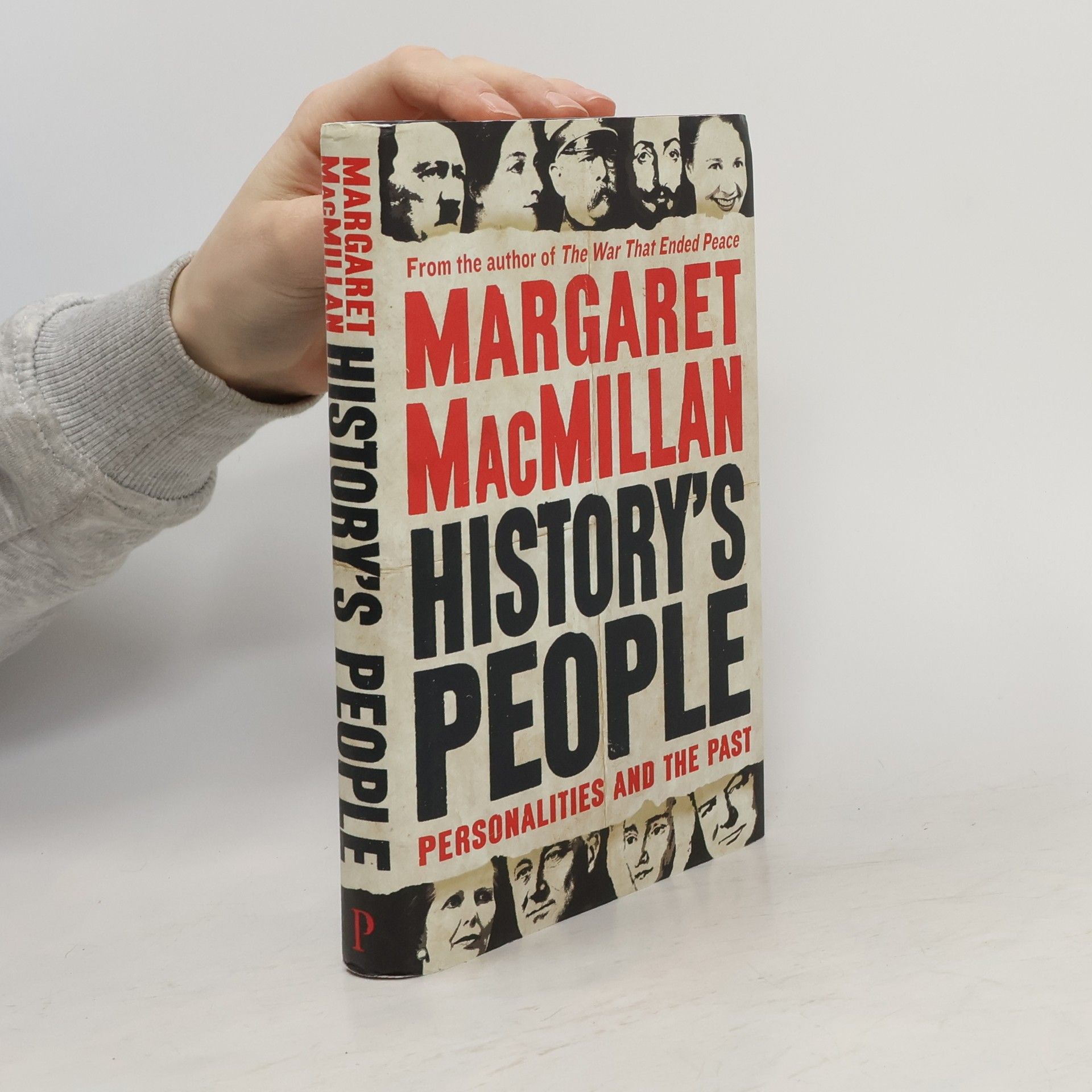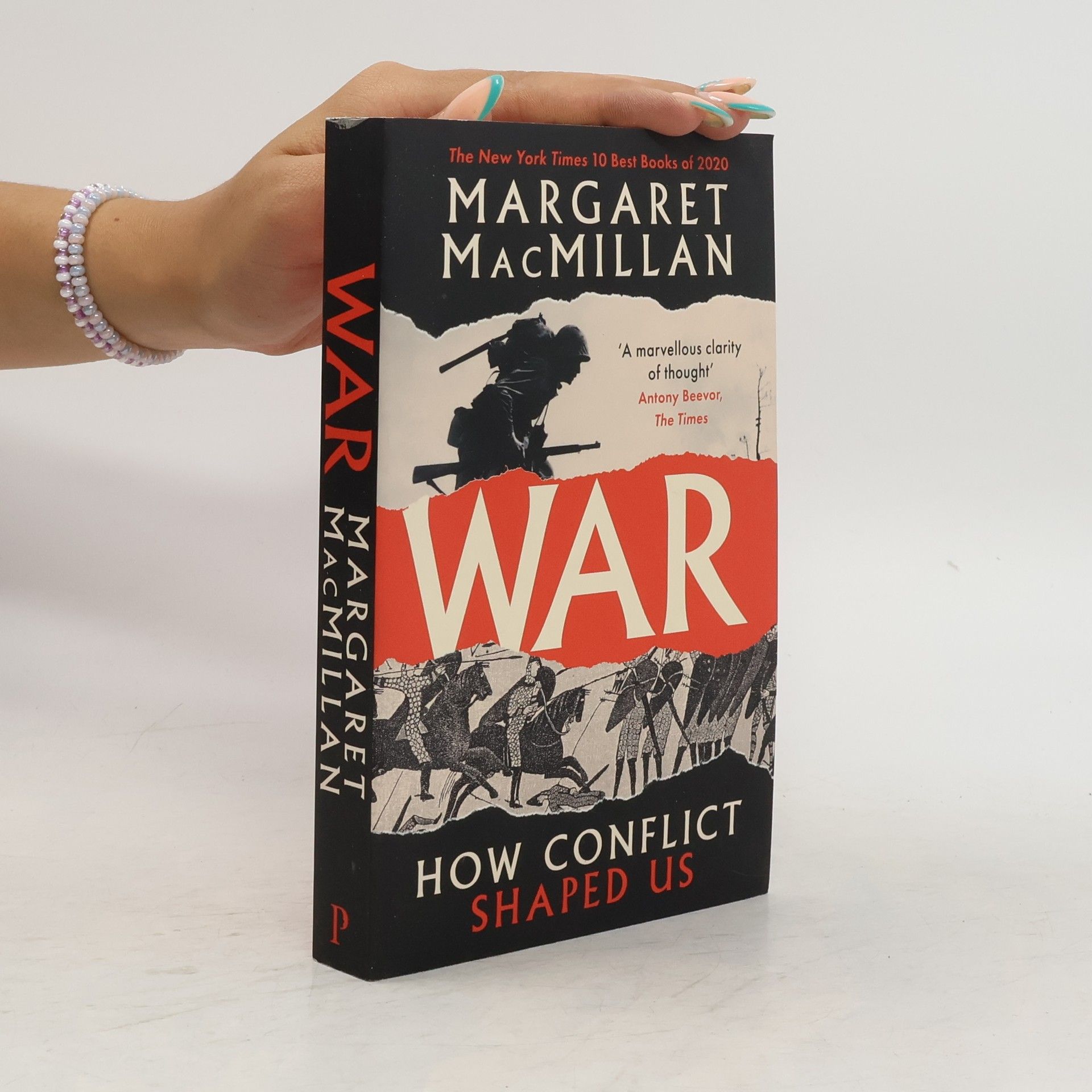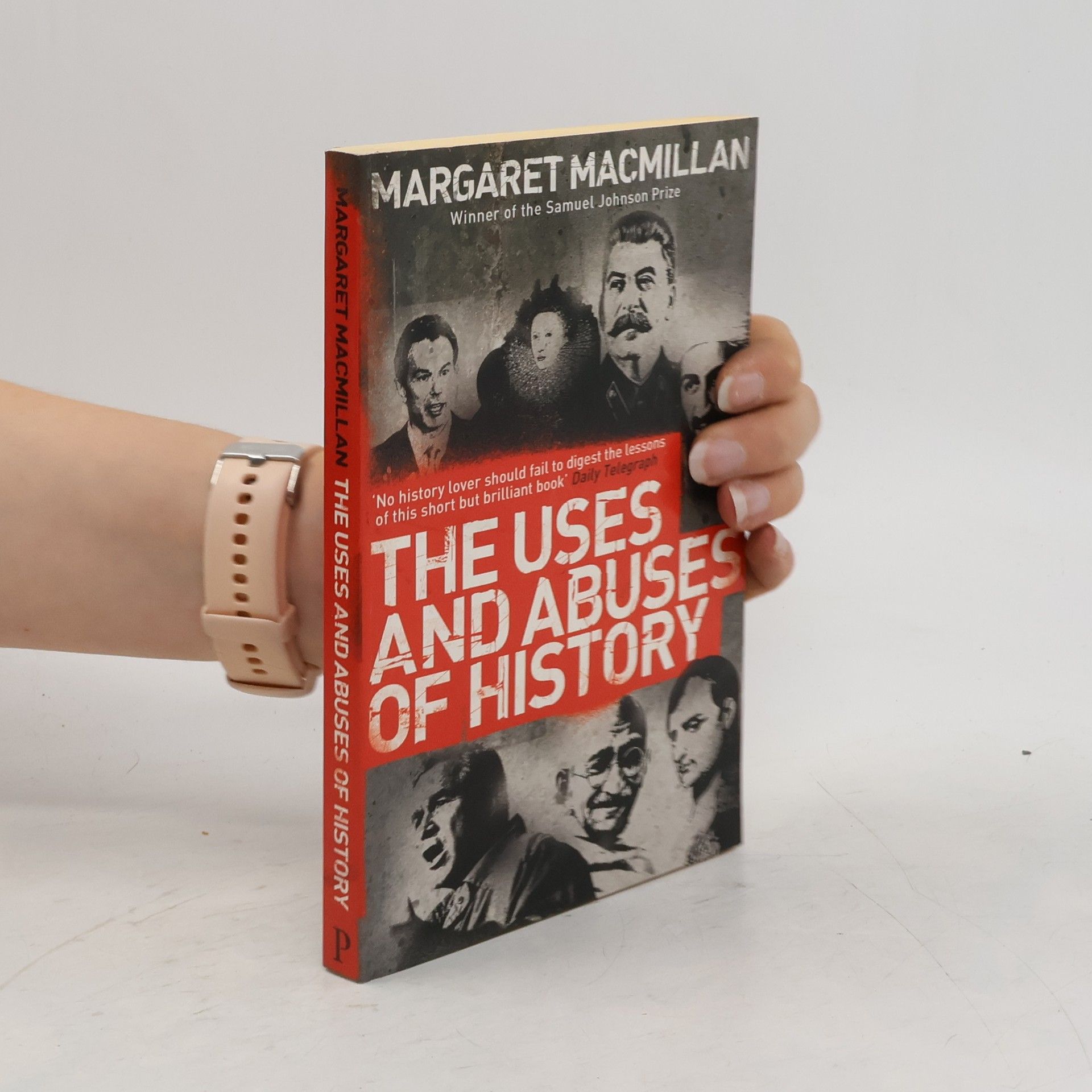Na 'de oorlog die een einde aan alle oorlogen moest maken', kwamen mannen en vrouwen uit de hele wereld in Parijs bijeen voor de vredesbesprekingen. De drie grote leiders uit die tijd, Woodrow Wilson, David Lloyd George en Georges Clemenceau, vormden het hart van de conferentie, maar duizenden anderen kwamen ook: koningen en ministers met hun schare adviseurs; journalisten en lobbyisten voor een verscheidenheid aan belangen, van de Armeense onafhankelijkheid tot gelijke rechten voor vrouwen. Parijs 1919 is het verhaal over hen die de wereldkaart opnieuw intekenden. Zij legden de grenzen van Rusland verder oostwaarts, ze lieten Polen opnieuw geboren worden, ze worstelden met de problemen rond Kosovo, de Koerden en de joodse staat. Vaak is geschreven dat er een rechte historische lijn te trekken is van de drie wereldleiders in de Spiegelzaal in het paleis van Versailles naar de Duitse inval in Polen in 1939. Margaret MacMillan laat echter zien dat de geschiedkunde dezez mannen niet altijd juist heeft beoordeeld. Zij werden afgerekend op fouten die later werden gemaakt. Ze probeerden rechtvaardig te zijn, maar hun doelstellingen konden niet met diplomatieke middelen worden bereikt. Parijs 1919 is onmisbare literatuur voor hen die de wereld van vandaag willen begrijpen.
Margaret MacMillan Boeken
Margaret MacMillan is een gerespecteerd historicus en professor wiens werk zich richt op internationale betrekkingen en geschiedenis. Haar geschriften duiken in de complexe oorzaken van oorlog en vrede, en onderzoeken hoe gebeurtenissen uit het verleden de huidige wereld vormgeven. Haar analytische stijl en haar vermogen om historische parallellen te verbinden met actuele problemen maken haar een belangrijke stem in de geschiedschrijving. Lezers zullen haar diepgaande inzichten in de menselijke natuur en politieke processen waarderen.

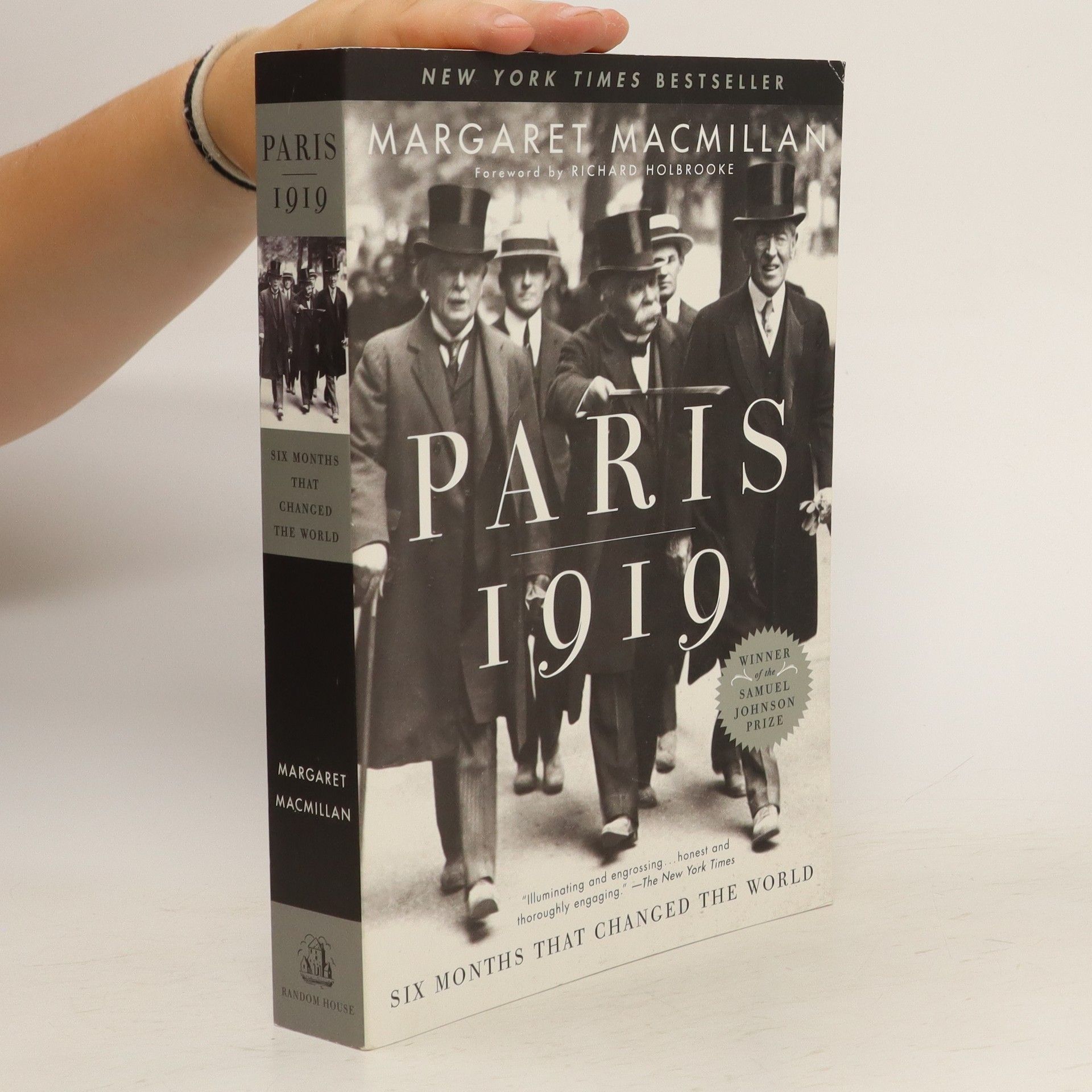
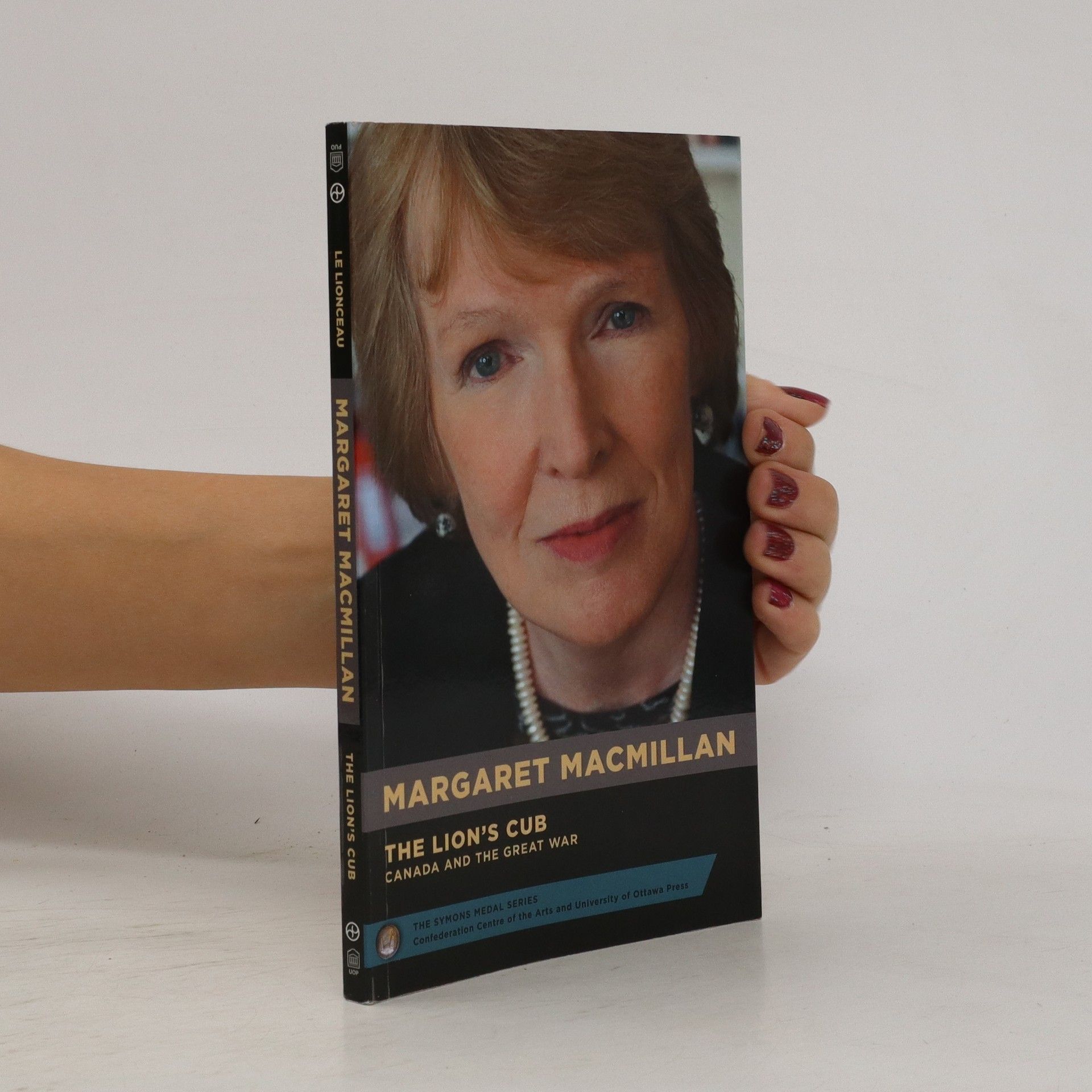
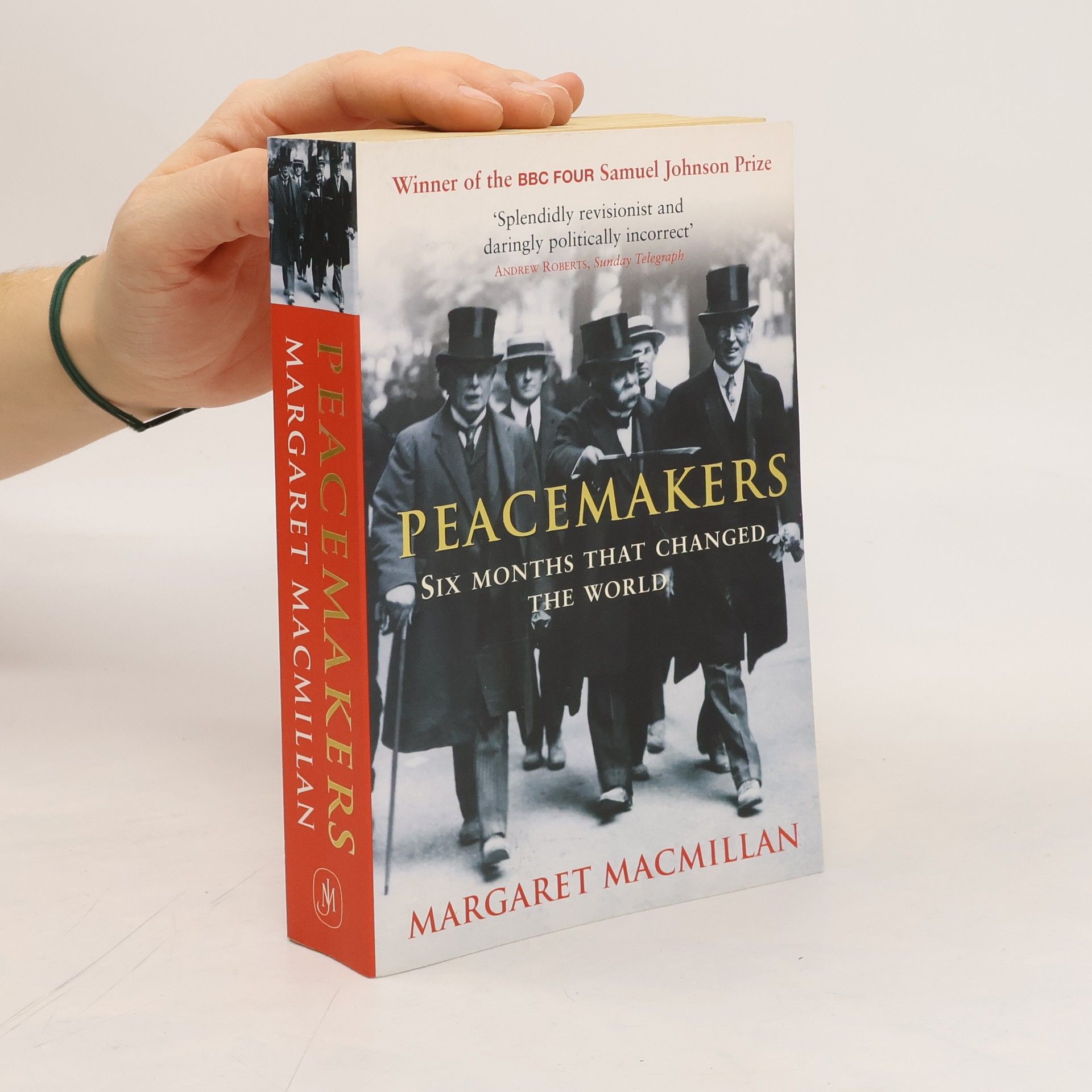



The War that Ended Peace
- 699bladzijden
- 25 uur lezen
The First World War followed a period of sustained peace in Europe during which people talked with confidence of prosperity, progress and hope. But in 1914, Europe walked into a catastrophic conflict which killed millions of its men, bled its economies dry, shook empires and societies to pieces, and fatally undermined Europe's dominance of the world. Beginning in the early 19th century, and ending with the assassination of Archduke Franz Ferdinand, historian Margaret MacMillan uncovers the huge political and technological changes, national decisions and - just as important - the small moments of human muddle and weakness that led Europe from peace to disaster.
Peacemakers
- 528bladzijden
- 19 uur lezen
The story of the Paris Peace Conference of 1919, when for six extraordinary months the city was at the centre of world government as the peacemakers wound up bankrupt empires and created new countries. This book brings to life the personalities, ideals and prejudices of the settlement brokers.
Peacemakers : six months that changed the world
- 592bladzijden
- 21 uur lezen
Between January and July 1919, following "the war to end all wars," individuals from across the globe gathered in Paris to forge a new peace. At the forefront was American President Woodrow Wilson, whose Fourteen Points inspired many with the hope of realizing their dreams. Wilson, characterized by his sternness and idealism, envisioned a League of Nations to peacefully resolve future conflicts. Alongside him were notable figures like British Prime Minister David Lloyd George, who included Winston Churchill and John Maynard Keynes in his delegation. Lawrence of Arabia represented the Arab interests, while Ho Chi Minh, then a kitchen assistant, sought independence for Vietnam. For six months, Paris became the epicenter of global diplomacy as peacemakers dismantled empires and established new nations. This narrative illuminates the personalities, ideals, and biases of those who influenced the settlement, revealing how they marginalized Russia, alienated China, and overlooked Arab concerns. They grappled with issues affecting Kosovo, the Kurds, and Jewish homeland aspirations. While often blamed for the failures that led to another war, Margaret MacMillan contends that these peacemakers have been unjustly scapegoated for the subsequent mistakes of later leaders, challenging the conventional view of the Versailles Treaty’s role in the onset of World War II.
Esteemed Canadian writer and historian Margaret MacMillan considers the paradoxical impact the First World War has had on Canada in her 2018 Symons medal address, The Lion's Cub.
Paris 1919
- 624bladzijden
- 22 uur lezen
National Bestseller New York Times Editors’ Choice Winner of the PEN Hessell Tiltman Prize Winner of the Duff Cooper Prize Silver Medalist for the Arthur Ross Book Award of the Council on Foreign Relations Finalist for the Robert F. Kennedy Book Award For six months in 1919, after the end of “the war to end all wars,” the Big Three—President Woodrow Wilson, British prime minister David Lloyd George, and French premier Georges Clemenceau—met in Paris to shape a lasting peace. In this landmark work of narrative history, Margaret MacMillan gives a dramatic and intimate view of those fateful days, which saw new political entities—Iraq, Yugoslavia, and Palestine, among them—born out of the ruins of bankrupt empires, and the borders of the modern world redrawn.
Nixon in China
- 512bladzijden
- 18 uur lezen
MacMillan makes history come to life in one of the most important subjects today: the relationship between the United States and China and the historic meeting of Richard Nixon and Mao Tse-tung in 1972 that ultimately laid the groundwork for the relationship between the two nations.
What difference do individuals make to history? Are we all swept up in the great forces like industrialisation or globalisation that change the world? Clearly not: real people-leaders in particular-and the decisions that they make change our lives irrevocably, whether in deciding to go to war or not, decisive tactical choices made in the heat of battle or changing the economic fortunes of countries.So if people-explorers, rulers, politicians, campaigners-make a difference in history, what is the role of personality? What difference did, for example, Nixon, Franklin Delano Roosevelt, Montaigne or Stalin make? And what about less visible but influential people such as Edith Durham in the early twentieth century in Eastern Europe or Fanny Parks in nineteenth century India?Is it possible to find or discern patterns in different types of personality-tyranny, risk-taking, curiosity, reluctance to act? This pithy book interrogates the past to ask very big questions about the role of individuals and their behaviour. It really matters: the personalities of the powerful can affect-for better or worse-millions of people and the future of countries. Like all the best history, this book colours the way you see not only the past but the present.
War
- 336bladzijden
- 12 uur lezen
How the human history of conflict has transformed the world we live in - for good and evil.
The Uses and Abuses of History
- 208bladzijden
- 8 uur lezen
The past is capricious enough to support every stance - no matter how questionable. In 2002, the Bush administration decided that dealing with Saddam Hussein was like appeasing Hitler or Mussolini, and promptly invaded Iraq. Were they wrong to look to history for guidance? No; their mistake was to exaggerate one of its lessons while suppressing others of equal importance. History is often hijacked through suppression, manipulation, and, sometimes, even outright deception. MacMillan's book is packed full of examples of the abuses of history. In response, she urges us to treat the past with care and respect.

